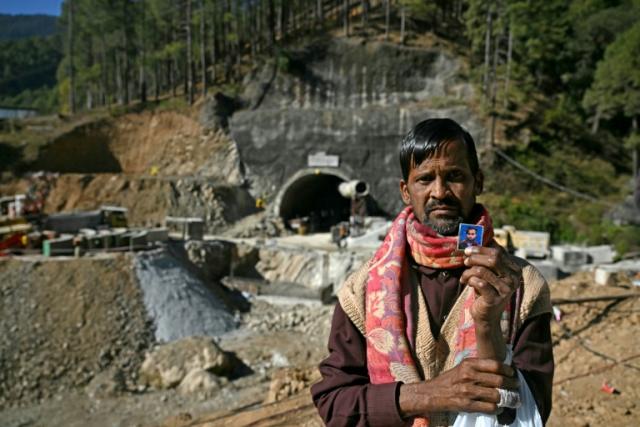
SILKYARA TUNNEL , India, Nov 22, 2023 (BSS/AFP) - Indian rescue teams cleared rubble with excavators and dug tunnels Wednesday to clear a path for long metal tubes -- the hoped-for escape route for dozens of workers trapped in a collapsed road tunnel for 11 days.
Teams are drilling in two directions in a bid to dig a rescue shaft nearly half a kilometre (over a quarter of a mile) long to reach the 41 increasingly desperate men.
Excavators have been removing tonnes of earth, concrete and rubble from the under-construction tunnel in the northern Himalayan state of Uttarakhand since November 12, when a portion of the tunnel collapsed.
But rescue efforts have been slow, complicated by falling debris as well as repeated breakdowns of crucial heavy-drilling machines, with the air force having to twice airlift in new kit.
An AFP journalist at the site on Wednesday said the site was busy with excavators and heavy trucks that were bringing in tubes the width of a man to the entrance of the tunnel.
The tubes are designed to create a safe exit route as drilling through the debris pushes forward horizontally towards the men.
At least 57 metres (187 feet) of earth and rock still divide the men from freedom, but engineers have been trying to drive a steel pipe through that, just wide enough to fit the men.
Uttarakhand chief minister Pushkar Singh Dhami on Wednesday spoke of the "positive progress made in the last 24 hours", without further details.
The workers were seen alive for the first time on Tuesday, peering into the lens of an endoscopic camera sent by rescuers down a thin pipe through which air, food, water and electricity are being delivered.
While trapped, they also have plenty of space, with the area inside some 8.5 metres (28 feet) high, and stretching some two kilometres (1.2 miles) in length.
- 'Challenging Himalayan terrain' -
A giant earth-boring machine being used to dig the initial route to the men ran into boulders, and work was paused on Friday after a cracking sound in the roof. Digging resumed Tuesday.
But rescue teams are working on two new approaches to reach the men.
One involves drilling a vertical shaft down from the forested hill above, forcing rescuers to cut an entirely new track to the hilltop for the heavy equipment needed.
Officials have estimated the proposed vertical shaft would need to be 89 metres (291 feet) deep, a potentially complex dig above the men in an area that has already suffered a collapse.
Installation of the machine to dig the vertical rescue tunnel is "currently underway", a government statement late Tuesday said.
The other is to approach from the far side of the road tunnel, a much longer route estimated to be around 480 metres, officials said.
"They have started drilling from the other end of the tunnel," Mahmood Ahmad, additional secretary technical road and highways, told AFP, saying they had begun blasting through the hillside on Tuesday.
Ahmad said he hoped for "happy news" by Thursday night, without giving further details.
But a government statement also noted that "timelines provided are subject to change due to technical glitches, the challenging Himalayan terrain, and unforeseen emergencies".